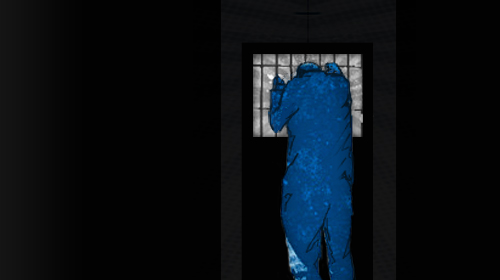Marty Atencio (1967-2011): Another Victim of Sheriff Joe Arpaio's Jails


Earnest “Marty” Atencio, 44 years old, died on December 20, 2011. His dead body was covered with bruises, lacerations and puncture marks – wounds that made him look like the victim of a vicious attack by criminals. But Marty Atencio wasn’t attacked on the street; the attack that cost him his life took place at the Maricopa County Jails (MCJ) in Phoenix, run by the self-styled “toughest sheriff in America,” Joe Arpaio, and the assailants wore badges and uniforms.
Today, Marty’s estate, parents, and three sons will file a lawsuit seeking justice.
https://www.youtube.com/watch?v=YRgVoNOMnUo
Please note that by playing this clip You Tube and Google will place a long-term cookie on your computer. Please see You Tube's privacy statement on their website and Google's privacy statement on theirs to learn more. To view the ACLU's privacy statement, click here.
Marty’s death is the latest in a string of highly-publicized fatalities at the Maricopa County Jail during Sheriff Arpaio’s tenure. To date, the County has had to pay out more than $40 million to settle wrongful injury and death lawsuits brought on behalf of Maricopa County inmates and their families.
In 2008, the ACLU joined an ongoing lawsuit against corrections officials in Maricopa County over conditions at MCJ, charging inadequate medical and mental health care during booking and incarceration. That year, a federal judge ordered sweeping reforms to the Jail’s medical and mental health systems. Despite this victory, the thousands of men and women who are booked into MCJ each year remain at risk.
Marty was a third-generation veteran. His grandfather, great uncles, and father had fought for the United States in World War II and the Korean and Vietnam wars. Marty’s return to civilian life was not an easy one. After leaving the service, he was diagnosed with schizoaffective disorder, a serious mental illness that can result in psychosis and delusions. He was generally able to control his symptoms with medication, but not always.
On December 15, 2011, Marty’s symptoms began to emerge again. Earlier that evening, Phoenix police observed him acting erratically outside of a convenience store. Shortly after, they arrested him for allegedly acting aggressively toward a stranger. The arresting officer later wrote that his behavior was "consistent with someone experiencing mental health issues." Marty cooperated peacefully with the officers who arrested him. Shortly after 1:00am on December 16, Marty arrived at the Fourth Avenue Jail in downtown Phoenix, the intake and booking facility for the Maricopa County Jail.
Officers at the jail recognized that Marty was in a state of acute crisis. In interviews, they described him as erratic, “off his rocker,” and psychotic. During the intake process, Marty told staff that he was having suicidal thoughts and was placed in an isolation cell, where he remained for about 30 minutes before being brought to another room where he was fingerprinted. At this point, security video shows Marty with his back against the wall, surrounded by approximately nine officers. There is no audio to accompany the video, but there is no indication that Marty was being physically combative or threatening.
According to accounts stated in papers filed by his family’s attorneys, Marty refused to remove his left shoe. Officers jumped on Marty and beat him. They also Tasered Marty, including at least once to his chest, delivering a shock of up to 50,000 volts followed by 100 micropulses of 1,200 volts. After a cursory exam by health care personnel, officers carried Marty face down to a “safe cell,” stripped him naked, and continued to brutalize him. Then they walked away, leaving Marty in dire medical condition, facedown, and locked behind a solid door. Security video shows Marty lying naked on the cell floor, motionless. Almost nine minutes passed before jail personnel decided to start emergency procedures. Although staff restarted his heart, Marty Atencio never woke up. His family chose to terminate life support four days later.
Many reading this blog post will hope that what happened to Marty Atencio will never happen again. Maricopa County and the Sheriff’s Office, however, can do more than just hope. They can – and must - take real, concrete, affirmative steps to ensure that a jail stay does not become a death sentence for men and women like Marty Atencio.
Learn more about prisoner's rights: Sign up for breaking news alerts, follow us on Twitter, and like us on Facebook.
